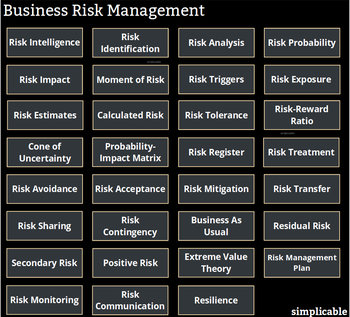
Governance FrameworkThe framework of principles, processes and rules that govern a firm. | Roles & ResponsibilitiesGovernance establishes the roles, responsibilities, authority and accountability of board members and executive management. |
Protecting Stakeholder InterestsCorporate governance is accountable for protecting the interests of stakeholders in a firm, particularly owners such as shareholders. | Transparency & DisclosureProviding timely information to stakeholders. |
OversightGovernance provides oversight of executive management and can replace them. | Strategic GuidanceGovernance boards approve the major strategy of a firm and provide strategic guidance. |
Risk ManagementMonitoring of risk and oversight of risk management efforts. | Managing Conflicts of DutyMechanisms to prevent, identity, disclose and manage conflicts of interest such as self-dealing. |
Ethical ConductSetting standards and establishing culture for ethical conduct and handling ethical issues promptly and openly. | Executive CompensationAligning executive compensation to stakeholder interests. For example, making sure it is not excessive or out-of-line with performance. |
Regulatory ComplianceMonitoring compliance and oversight of compliance. | Corporate Social ResponsibilityMaking sure a firm’s strategy and execution take into account social, environmental and ethical impacts. |
Whistleblower ProtectionImplementing policies that allow stakeholders such as employees to report concerns without fear of retaliation. The governance board itself should be reachable and open to receiving such concerns. | Resolving Issues and DisputesProvides the top level structure in an organization for resolving issues, conflicts and disputes within the firm. |
Strategic PerformanceEnsures accountability for the performance of strategy and execution. For example, calls on executive management to explain strategic failures. This can result in replacement of management and is a consideration in compensation. | The FutureEnsuring that the strategy and execution of a firm are aligned to long term value creation and the future as opposed to things such as short term compensation targets. |

































